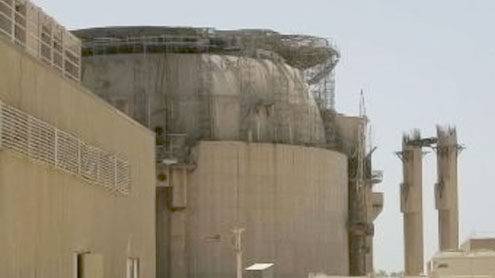 After weeks of hyping intelligence on the military aspects of Iran’s nuclear programme, the Obama administration’s public statements on the recently released International Atomic Energy Agency report are curiously moderate.
After weeks of hyping intelligence on the military aspects of Iran’s nuclear programme, the Obama administration’s public statements on the recently released International Atomic Energy Agency report are curiously moderate.
Off the record, US officials say that not all of America’s intelligence findings were included in the IAEA report — which aims to reflect international consensus. This fact speaks to a larger challenge — that the United States faces a credibility problem. Key countries do not share Washington’s assessment of Iran, and thus it’s unlikely that the US will disclose more substantial information.
Some administration officials would like to see harder evidence made public — if for no other reason than supporting calls for more “crippling” sanctions on Iran. But US intelligence agencies reportedly oppose more detailed disclosures for fear of jeopardising intelligence-gathering and sources. The US is, therefore, unlikely to secure more robust UN sanctions when it makes its case to the Security Council.
More important but less understood, however, are two longstanding and increasingly dangerous institutional problems within the US government that this case has brought to the fore: an overreliance on intelligence and under-utilisation of diplomatic resources when formulating Iran policy. By treating diplomacy with Iran as a reward to be earned rather than the vital national security tool that it is, American politicians have been administering a self-inflicted wound. The recent allegations against Iran show the critical role that intelligence can play in helping policymakers gather information and make decisions on the most challenging issues. However, intelligence is not meant to be taken in isolation — and when it comes to America’s Iran policy, it almost always is.
While serving in the State Department’s Office of Iranian Affairs, I learned the 10 per cent rule: intelligence is meant to make up approximately 10 per cent of the overall information used to analyse strategic issues. The remaining 90 per cent consists of embassy reporting and unclassified, open-source information.Intelligence is not a substitute for the critical work of diplomats on the ground — and perhaps no foreign policy issue demonstrates this more forcefully than Iran.
A diplomatic presence in Tehran is critical to ensuring that America avoids repeating the mistakes of its recent past. Inherent limitations of intelligence make the status quo unsustainable. In Iraq, an overreliance on intelligence and dearth of diplomatic reporting allowed Bush administration officials to make decisions with impunity. They claimed that highly classified, raw intelligence supported their policy, but failed to conduct the standard process of integrating it into the broader context with other reporting. Intelligence that was not properly checked for accuracy led to imbalanced analysis and disastrous decision-making.
America closed its embassy in Baghdad and severed diplomatic ties with Iraq in 1991. For the next 12 years, it operated in an increasingly injurious information vacuum. The inability to complement intelligence with diplomatic reporting led to policymakers cherry-picking raw intelligence that lacked a fuller context. As this information vacuum grew, so did Washington’s misperceptions and miscalculations — to the point of choosing to launch a costly war. This proven recipe for disaster has alarming parallels to America’s Iran crisis. The only missing piece is the catastrophic miscalculation at the end.
The 30-year freeze in diplomatic relations with Iran has produced a US government that knows precious little about a country that is integral to stabilising American national security interests in nonproliferation, terrorism, Afghanistan, Iraq, energy security and the Israeli-Palestinian conflict. Still, diplomatic relations are a two-way street. With the Iranian government operating an Interest Section in Washington, it would almost certainly have to reciprocate an American request to establish a similar diplomatic presence in Tehran — lest Iran’s leaders risk appearing even more obstinate. They do care about their international image, if only to avoid greater global consensus against them.
During my tenure at the State Department, we tried twice to push the idea of sending US diplomats to Tehran. Both the Bush and Obama administrations decided against it. My former State Department colleagues are now building a cadre of Iran-focused diplomats for an eventual on-the-ground presence. Nevertheless, the 10 per cent rule remains precariously imbalanced because America is trying to gauge the intentions of a country with which it has little direct contact — a situation that it rarely replicates elsewhere.
Things do not have to be this way. Diplomatic relations are not a gift to the Islamic Republic that will entrench a government with declining popular appeal. Naysayers need not look far for compelling evidence. Ambassador Robert Ford’s shrewd diplomacy in Syria firmly pursued US national interests, engaging with the Syrian government while also showing support for protesters seeking their universal rights — a demonstrably more effective approach than any amount of bluster or sanctions that Damascus would inevitably ignore.
Politicians like to opine on foreign policy, but they change with election cycles. Career diplomats and intelligence officials are often left to clean up the mess elected officials and political appointees leave behind. No foreign policy issue better demonstrates this self-defeating principle than Iran. The executive and legislative branches must stop politicising diplomacy vis-a-vis Iran, and let diplomats do their job. More than any new sanctions legislation, this is how politicians can truly act in pursuit of America’s vital national security interests. – Khaleejnews











